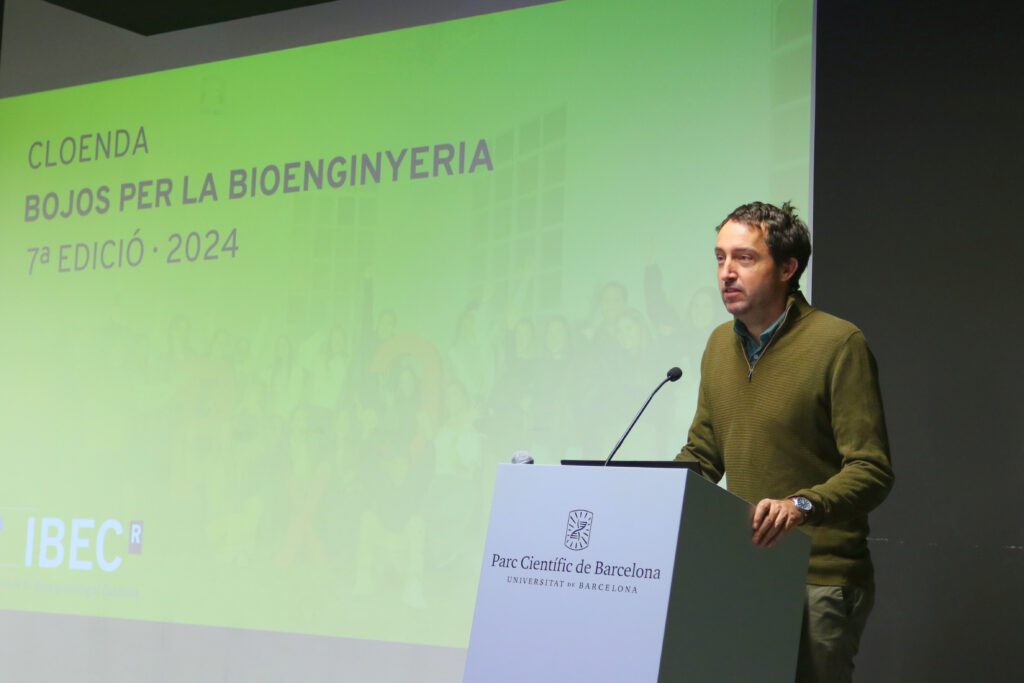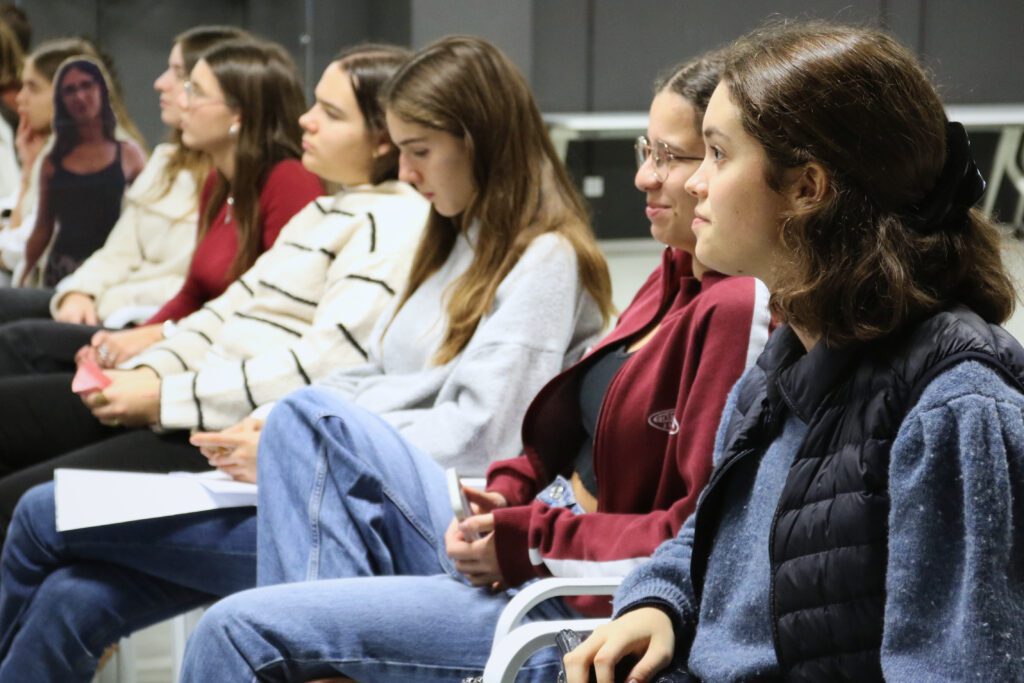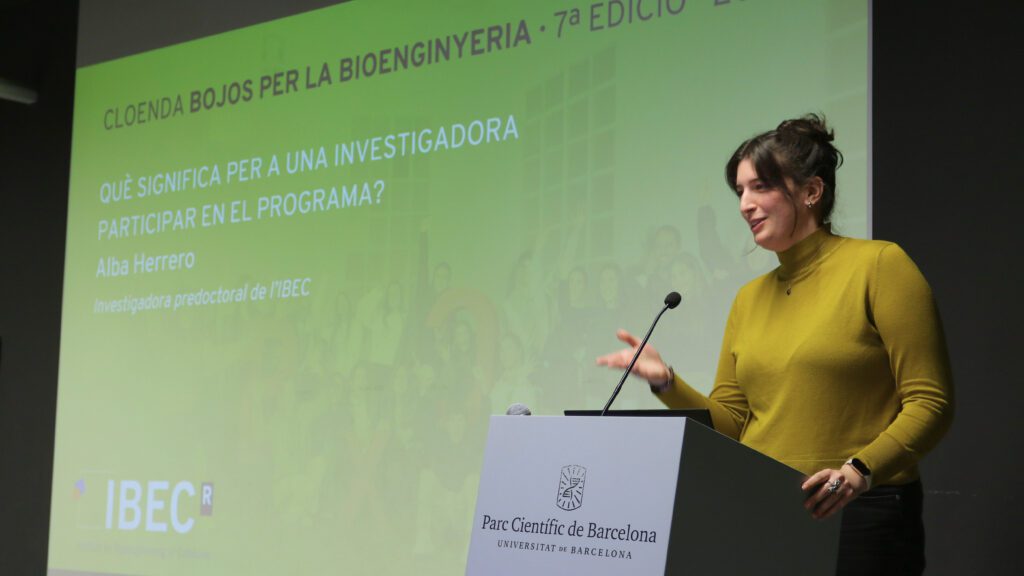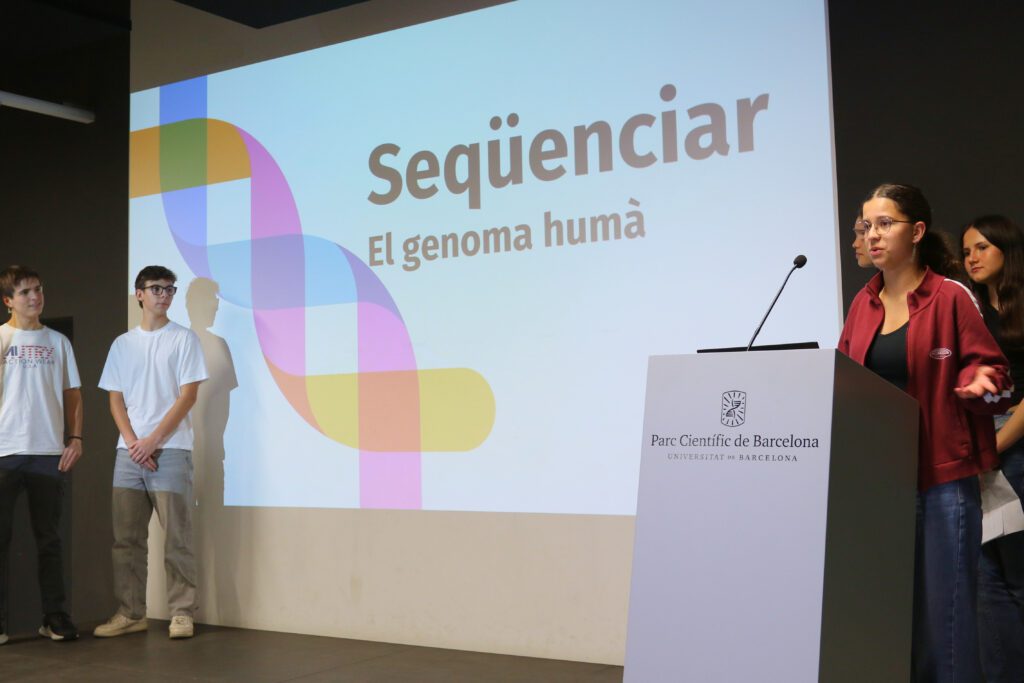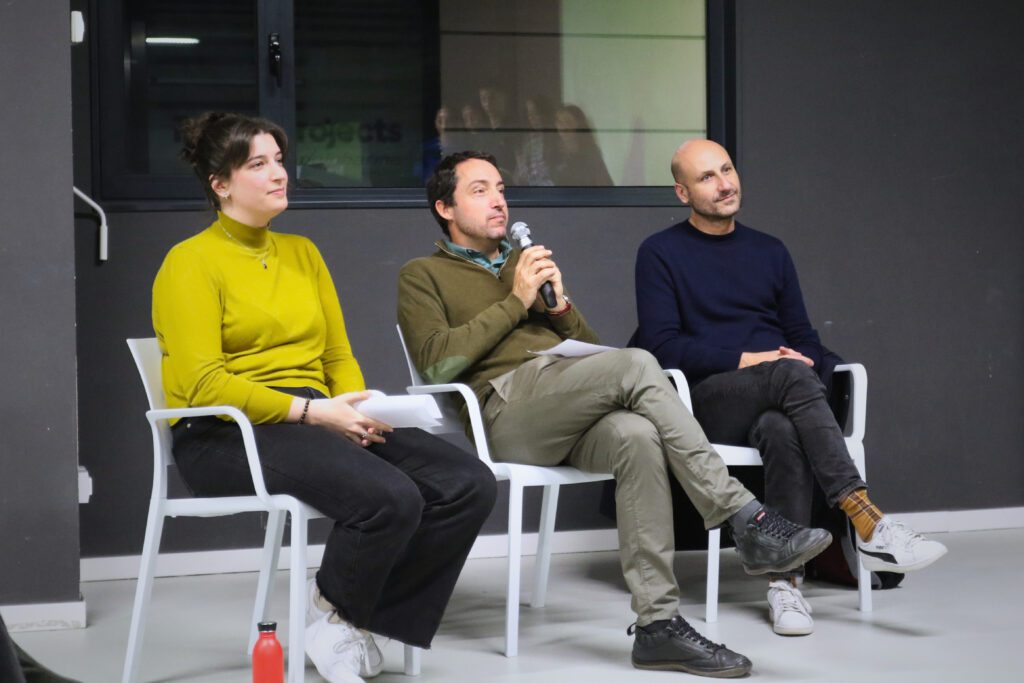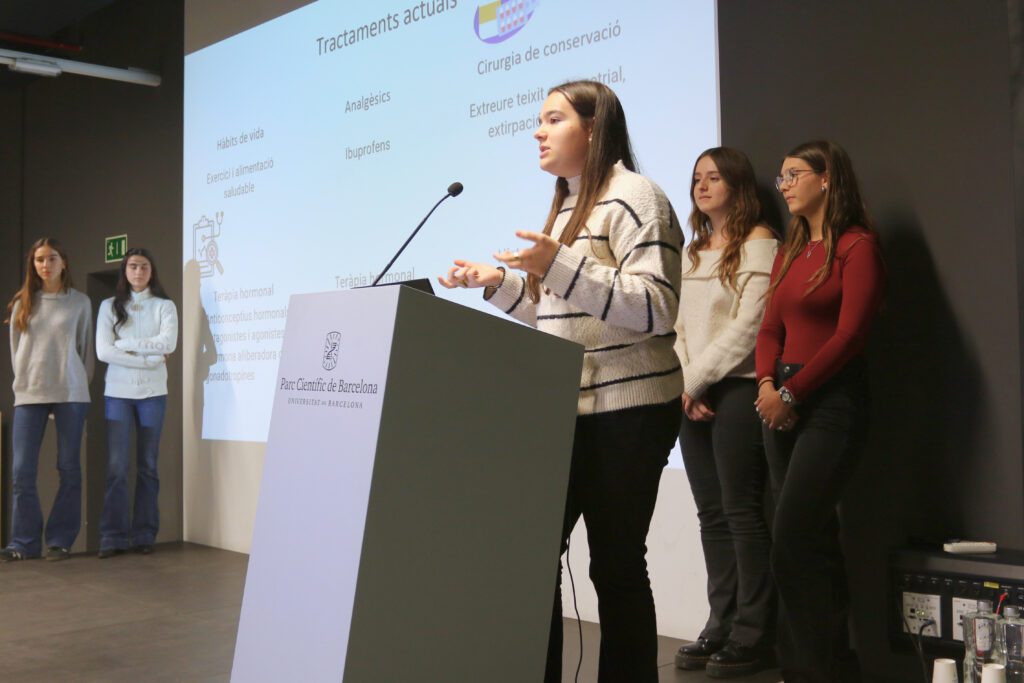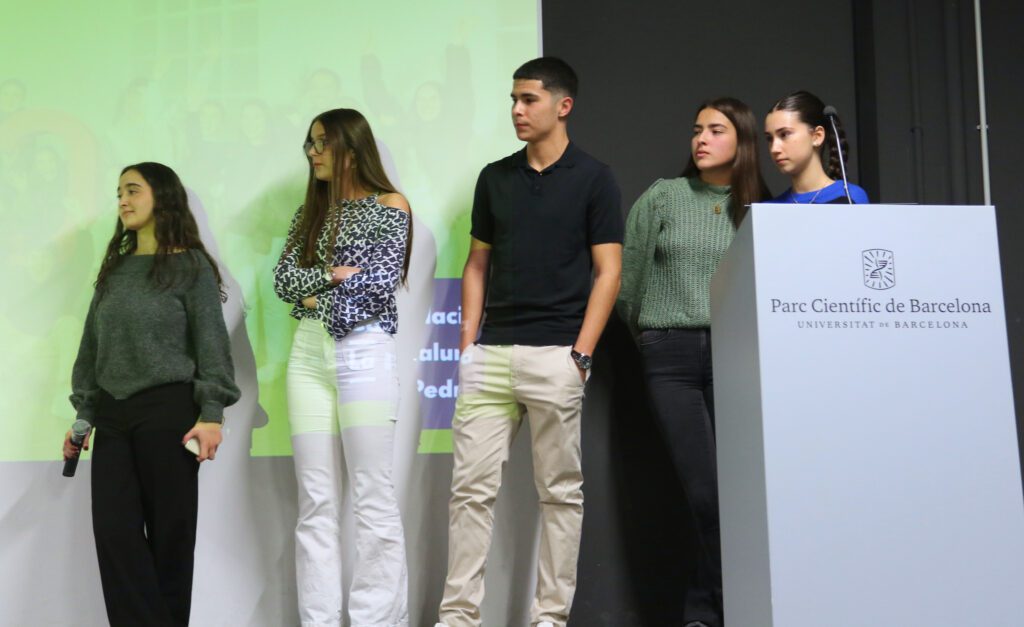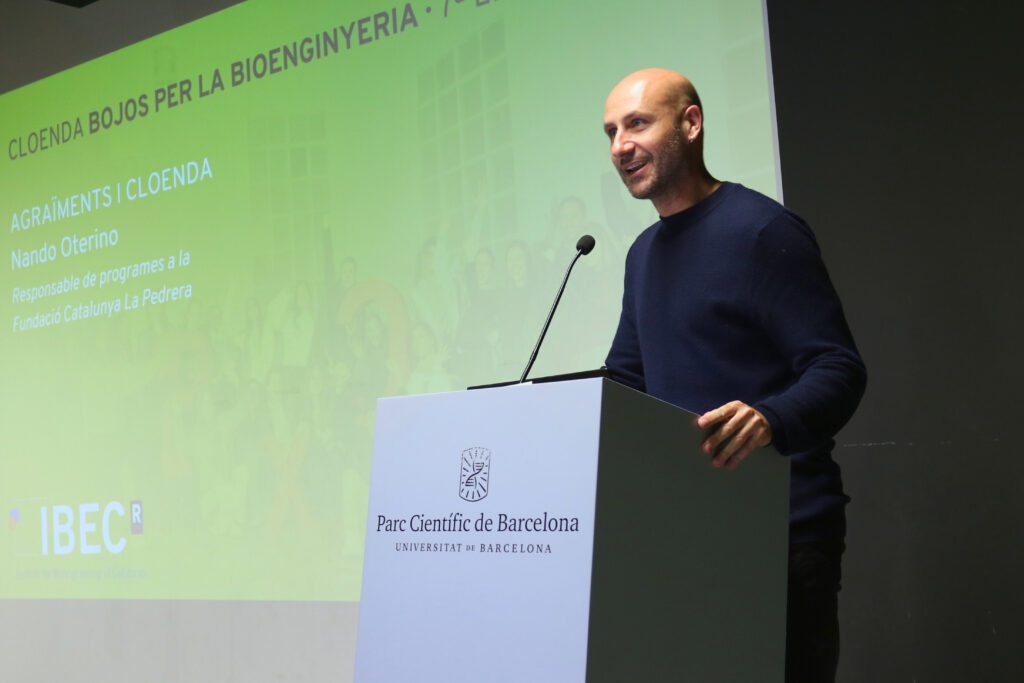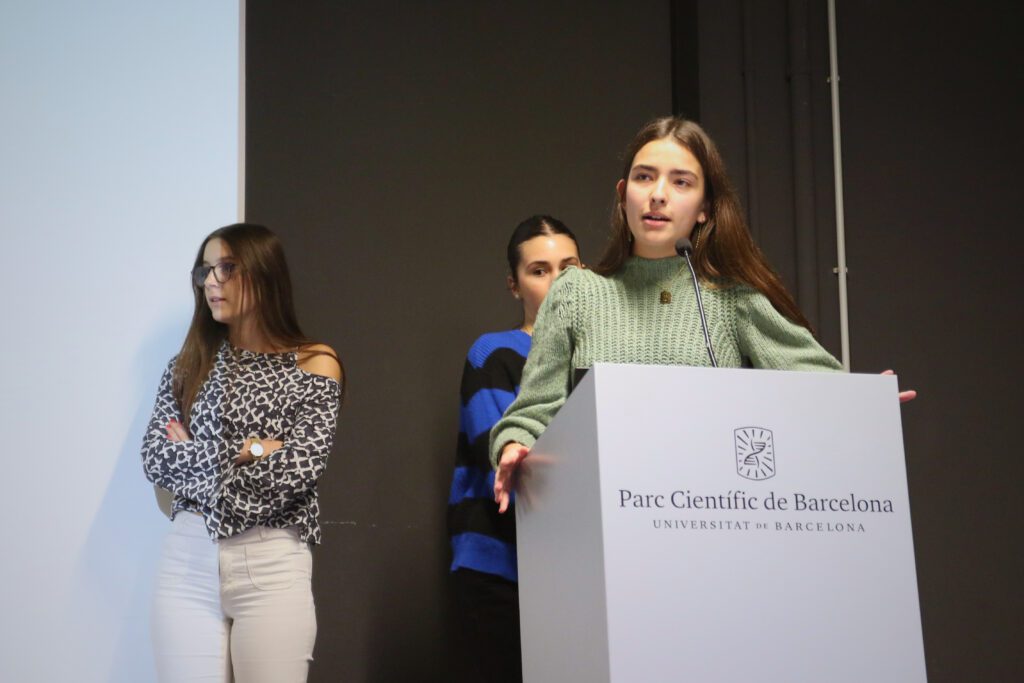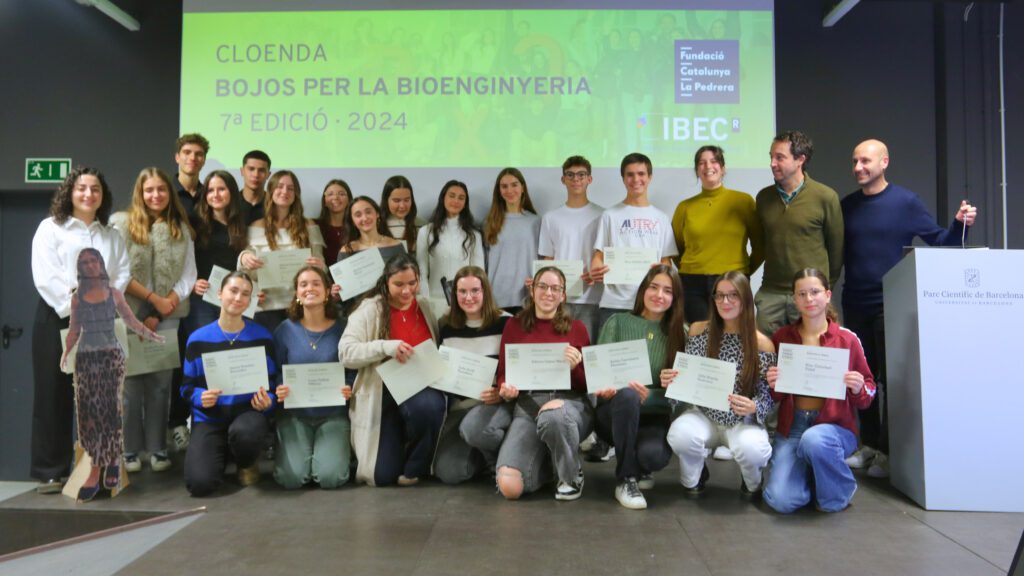For the seventh consecutive year, IBEC, with the support of the Catalunya La Pedrera Foundation, has successfully run its ‘Mad for Bioengineering’ course. Aimed at first-year students interested in STEM careers, the programme offers a unique immersion into the world of bioengineering, tackling health problems from a multidisciplinary perspective. The closing ceremony, attended by the students and their families, focused on the presentation of the final projects and the awarding of diplomas.
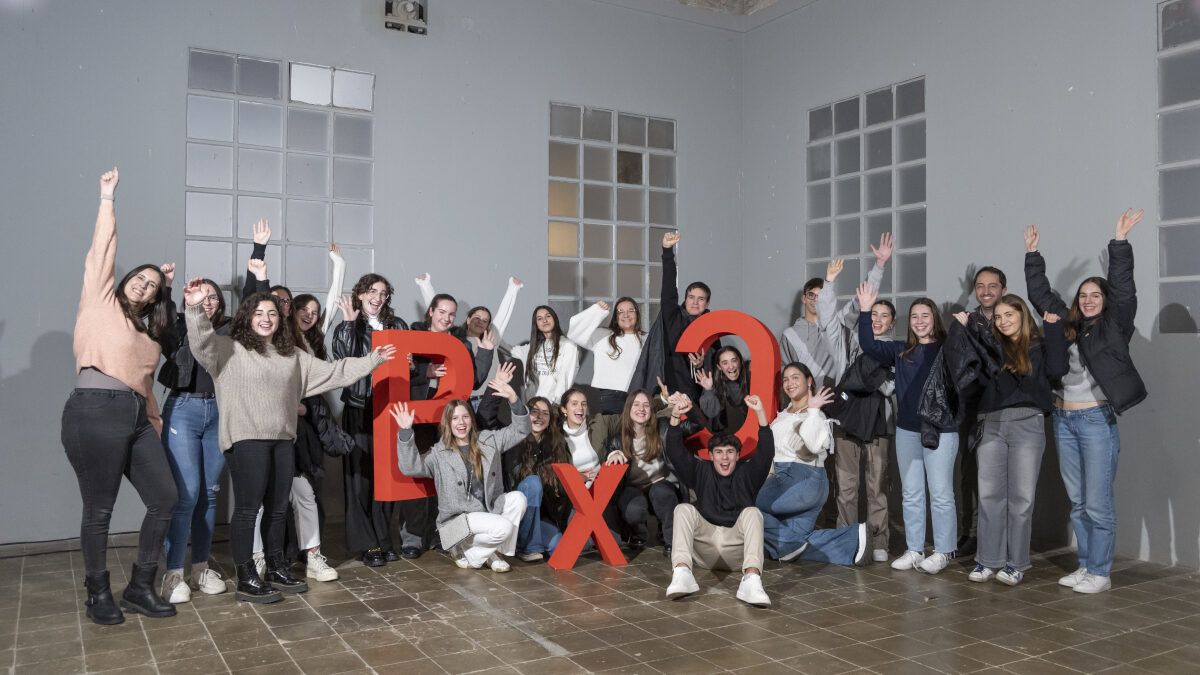
This is the seventh consecutive year that IBEC, with the support of the Fundació Catalunya La Pedrera, has organised the Mad for Bioengineering course. The programme, which is aimed at first-year high school students interested in science and STEM careers, aims to introduce them to the multidisciplinary environment of bioengineering, where different disciplines are combined to solve health problems.
The 24 young people selected have had the opportunity to experience bioengineering research applied to health at IBEC. Throughout the year, the students have met in 16 theoretical and practical sessions to explore research into diseases related to ageing, cancer and other rare diseases, all in a real research laboratory. They also took part in complementary workshops on ethical and scientific communication issues.
On Friday 29 November, the closing ceremony of the course was held at the Barcelona Science Park, where the ‘crazy’ girls and boys were accompanied by their families. The welcome speech was given by Pere Roca-Cusachs, senior researcher in the Cellular and Molecular Mechanobiology group at IBEC. Alba Herrero Gómez, researcher in the Molecular Imaging for Precision Medicine group and lecturer in this seventh edition of the course, then shared her personal experience of entering the world of research with the young people and their families.
The central moment of the day was the presentation of the final projects. Using the knowledge they had acquired throughout the course, the students were divided into five groups and presented various proposals to address current health challenges through the use of bioengineering. Topics included the use of organoids for clinical trials, nanorobots to treat genetic diseases or type 1 diabetes, endometriosis and the sequencing of the human genome.
After the 4-minute presentations, the students defended their ideas to Roca-Cusachs and Herrero, who asked questions and gave advice to the young people.
Finally, diplomas were awarded to the students taking part in this 2024. The event closed with a speech by Nando Oterino Blázquez, programme director of the Catalunya La Pedrera Foundation.
